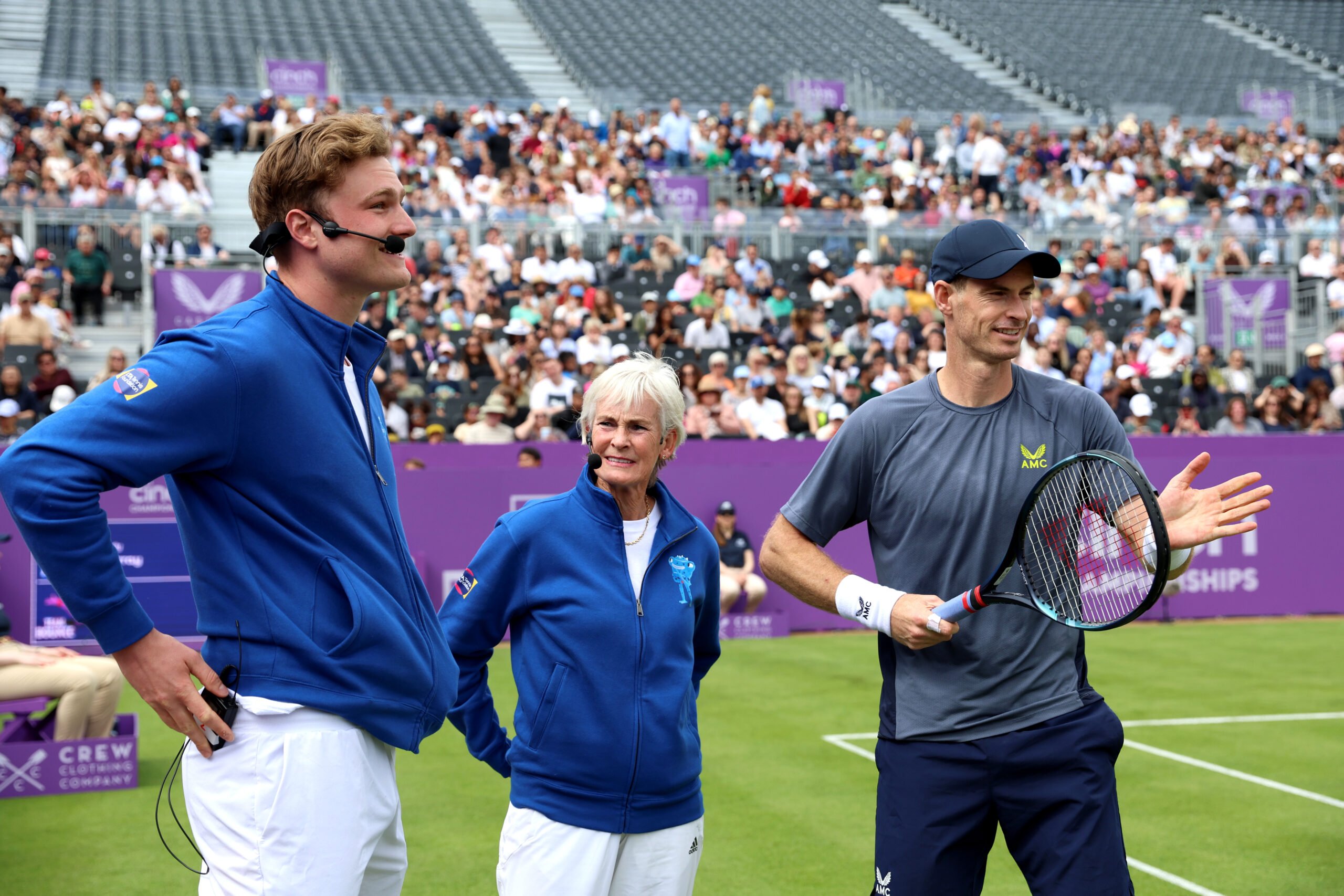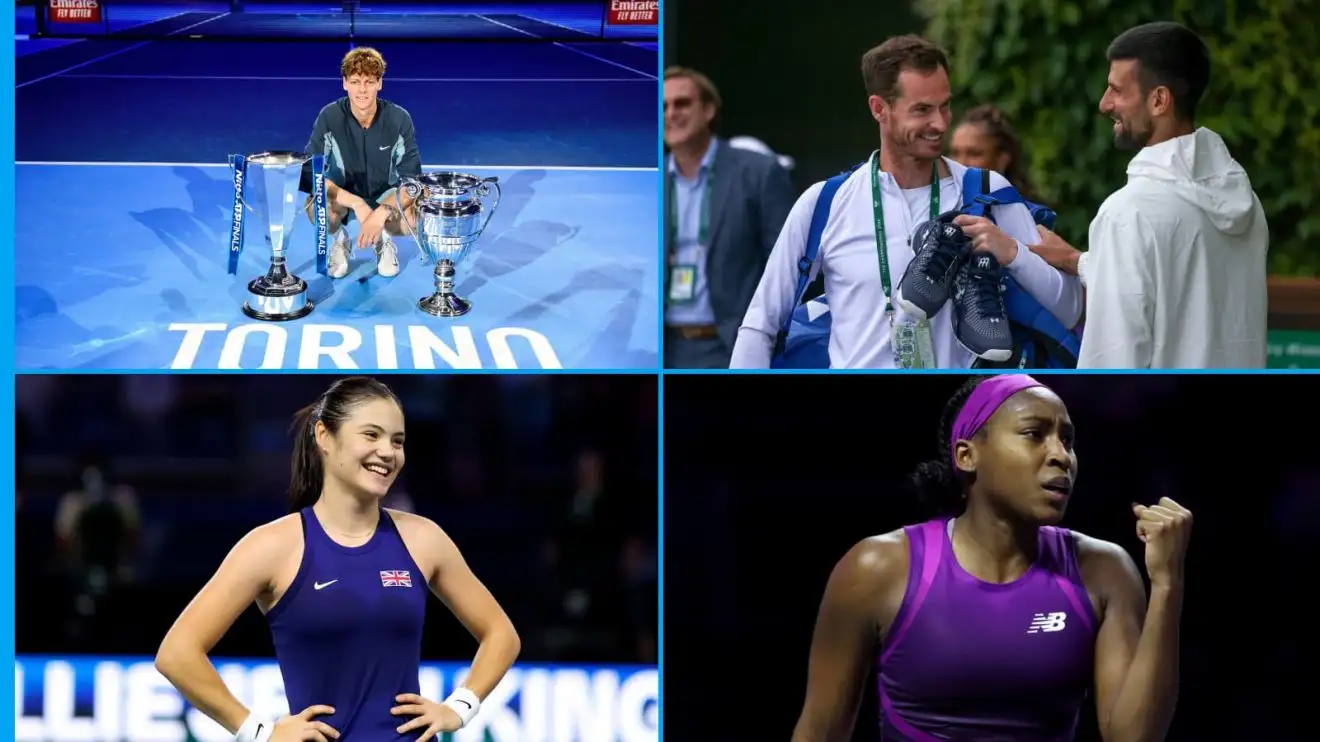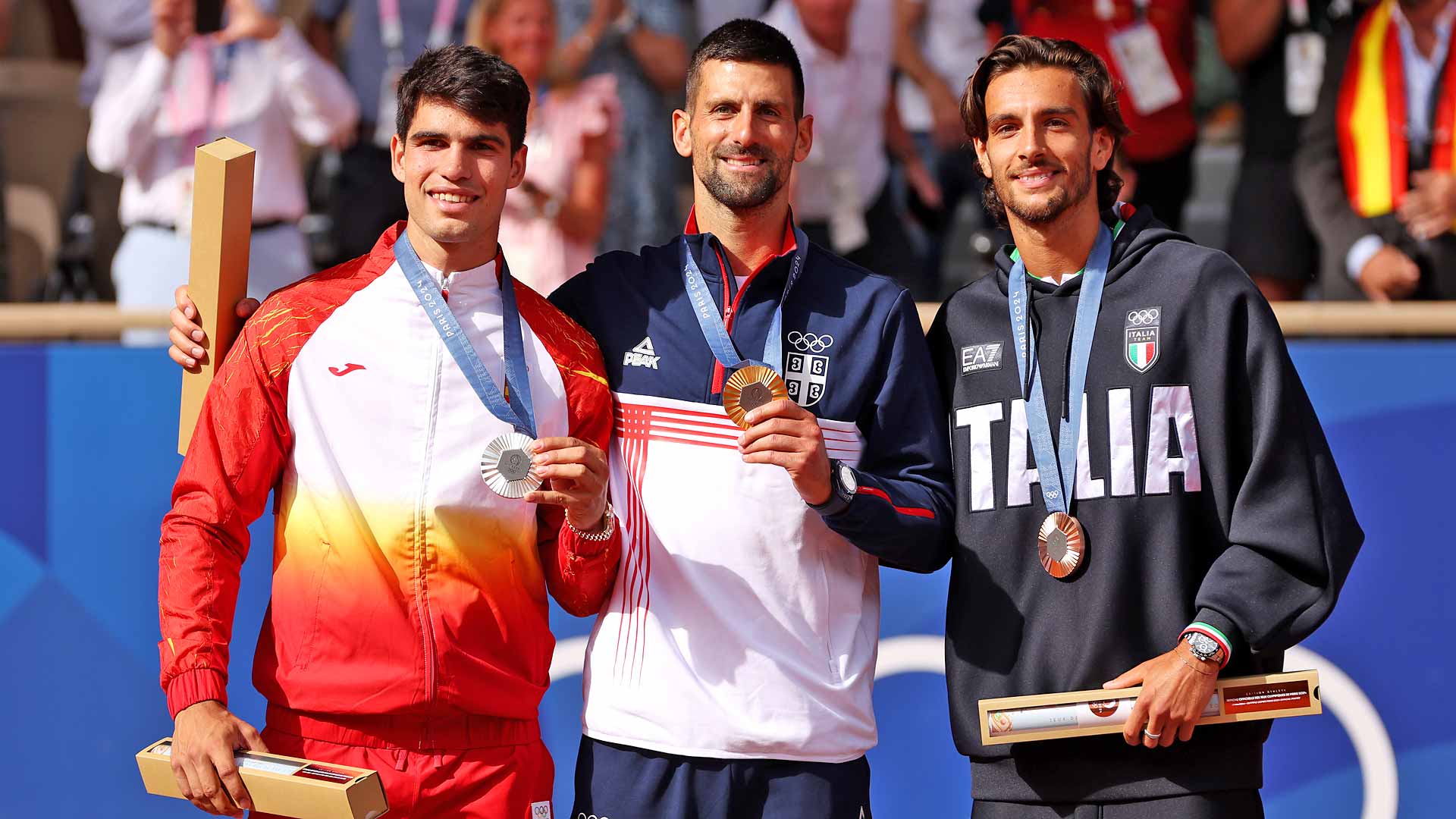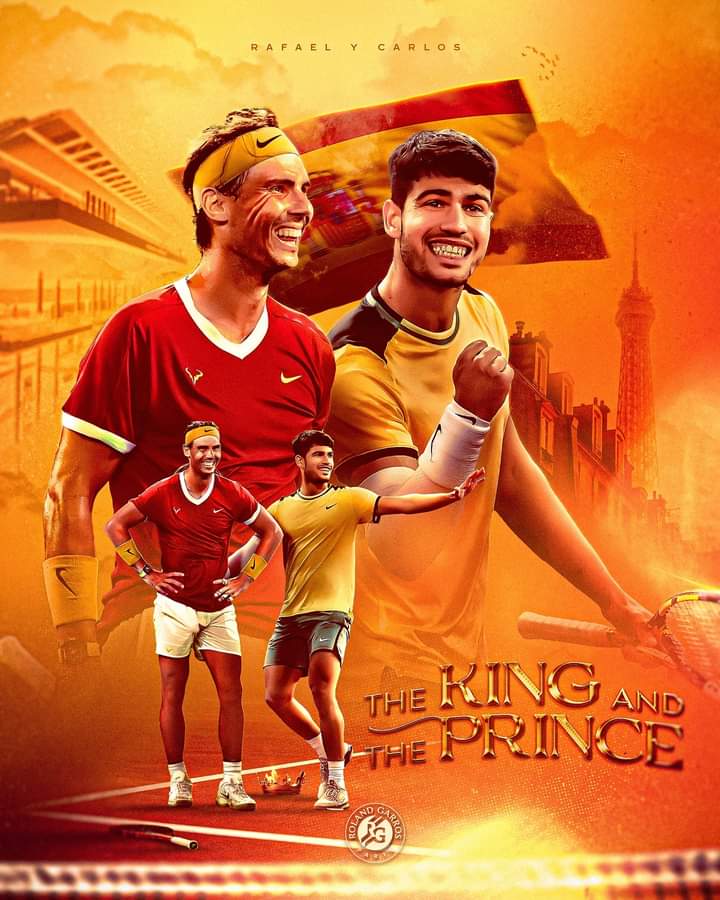Josh Berry interview: The tennis impressionist on Djokovic, Nadal, and Murray
How many people can say that they have spoken to the ‘Big Four’ of men’s tennis, as well as John McEnroe and Boris Becker, on topics ranging from the greatest male tennis player of all time to Rafael Nadal explaining his decision to dispense with prepositions when speaking English. That’s the experience of spending an hour on Zoom with comedian Josh Berry. The 28-year-old from Reading has become a familiar face (and voice) to tennis fans worldwide for his impeccably observed and executed impressions of the most famous men’s players. At 16 years old, he thought he would put a video on YouTube and see how it was received. It blew up. Within weeks, he was appearing on ESPN’s Wimbledon coverage and the tournament’s official channels. Berry’s main focus is on writing and performing comedy that has nothing to do with tennis, but every summer around the UK grass-court season he is in big demand from the tennis world. Andy Murray and Novak Djokovic, who faces Carlos Alcaraz in Sunday’s Wimbledon final, are particular fans of his. A couple of weeks ago, he went viral again by interviewing Murray as Murray. But how do the players take it when he impersonates them? “Andy is an absolute legend and he’s always great with it,” Berry says during an interview with The Athletic via Zoom — it’s a busy Wimbledon for him. “He’s just like, ‘Oh ok, you’re doing your impression’, and it’s great. He takes it extremely well.” Murray has also taken an active role in promoting his mimic. Back in 2017, when a 21-year-old Berry had just finished university, Murray suggested the impressionist interview him as Murray for the first time. He then promoted the video on his social media channels and gave Berry’s profile a huge boost just as he was starting out trying to make a living from comedy. “He’s an absolute gem,” Berry says. After a video of his Big Four impressions went viral when Berry was 16 in 2013 (thanks largely to a Djokovic endorsement on social media), he has been welcomed into the tennis fold. He has got to know Murray especially well, and has always been struck by Djokovic’s friendliness. Aged 17, Berry was invited to perform at the players’ party in Dubai in 2014. Djokovic interviewed him on stage and his warmth made a big impression. “Djokovic, for all the hatred he gets, he was remarkably friendly and very nice,” Berry says. “He’s always been extremely nice to me. He didn’t have to be that friendly. “Roger Federer was there and apparently, he enjoyed it as well, which is pretty cool. He’s the one with the biggest aura. It was like meeting a president or a god or something.” Nadal was a harder nut to crack, and there’s an awkward video of a 17-year-old Berry doing impressions to the seemingly baffled Spaniard. “I remember being like, ‘Oh so nice to meet you Rafa’.
And he was like, ‘No, no, no it is Rafael’. I think he was winding me up, but I don’t know. “And then I did an impression of that. Then we did a game of guess the impression, which is always a fairly excruciating exercise because if people don’t get it then you’re just standing there awkwardly and it’s awful. I did an impression of Murray. And, I can’t tell still, to this day… I’m not sure whether he was winding me up or genuinely, he didn’t get it, but he’s standing there and he’s confused. “And then he says to his team: ‘What a disaster on that one. Very bad’. And then he’s like: ‘Andy?’. “And I’m shaking at this point, this is just so painful for me. And then eventually it got a bit better. And I did Roger and him and he liked those I think.” While Berry has become famous for impersonating the best tennis players in the world, he didn’t choose Murray, Nadal, Djokovic and Federer as his inspirations as a mere tennis fan. He was a county-level tennis player as a junior, and then represented the University of Oxford, having become obsessed with the sport aged 10 in 2006, just as the Big Four era was beginning to emerge and the Williams sisters and other legends were battling for dominance of the women’s game. Lean and 6ft 6in (198cm), Berry has the physique of a modern player, and still participates in tiebreak challenges on YouTube, with a winning combination of seriousness and exaggerated despair. While devouring tennis growing up, he built up a huge database of material to mimic. “I used to listen to them all the time and by osmosis, started doing impressions of them,” he explains. “I had so much source material of them that they ended up being fairly accurate. Jon Culshaw (a British actor and impressionist) talks about downloading a voice, and when you have enough information you can start building that impression.” As a 12-year-old, Berry started saying, “Thank you very much everyone” in a Nadal voice to his mum, and he was away. It became a routine after tennis practice sessions for Berry to do his impressions to his team-mates, so aged 16, in 2013, he answered some questions in the style of each member of the Big Four and uploaded it onto YouTube. Not much happened straight away but a week later, the video had been watched more than 250,000 times, helped by Djokovic sharing it on his Twitter. Had that first video flopped, Berry, who is not a natural self-promoter, wonders whether he might never have gone down this path. “I’d probably be doing something boring,” he laughs.

Berry at an exhibition tournament at Queen’s Club with Judy and Andy Murray (Luke Walker/Getty Images for LTA)
It is maybe not surprising that Djokovic would give such a boost to an aspiring impressionist. When he first joined the circuit, he was a talented impersonator. His impersonation of Andy Roddick, Maria Sharapova, and Rafael Nadal won him the nickname “Djoker” and some locker-room ridicule; still, Djokovic promptly abandoned the routines.
Djokovic is not the only one who can pass for his opponents. Because of a brain phenomena known as “mirror neuron” capacity, many young players inherit the tics and habits of the players they look up to when they first start playing the sport. Whether an activity is being performed, seen, or imagined, the same area of the mammalian brain is active. A portion of how players learn is through emulation, which is believed to be made possible by mirror neurons.
Emma Raducanu stated following her victory against Maria Sakkari to advance to the Wimbledon fourth round last week: “I’ve been following Carlos Alcaraz (onto court) for the last couple of matches, and yeah, it’s just good to watch before the match.” There are times when you attempt to mimic specific shots.

Berry’s repertoire does not yet include the Alcaraz imitation (Ben Stansall/AFP via Getty Images)
Berry believes that something is going on here.
He states, “I’ve noticed that most tennis players I’ve met are quite observant, which makes the skill of observation a remarkably important one for a player.”
Comedians tend to have this intuition of selecting stuff out. We had a performance in an exhibition following my recent interview with Andy at Queen’s. “Oh, you’re not wearing grass-court shoes,” he said. That is somewhat unconventional. That seems like a really minor detail, so I was shocked that he noticed it.
“You’re constantly observing your opponent to determine whether they’re flagging and how they’re handling emotional situations. It’s similar to being a comic in that you have to continuously gauge how the audience feels about you through both vocal and nonverbal cues, asking questions like, “OK, do they want me to go further here or pull back?”
Berry bases his actions on his ability to observe and listen. Despite having a natural talent, he never stops honing his perceptions. He records himself repeating the players’ brief voice notes after listening to them. He claims that doing this keeps him relevant, yet voices do evolve with time.
Andy Murray is one such instance.
Berry notes that although Djokovic’s speech has changed dramatically due to his improved English, he has observed the reverse tendency with Nadal.
He quips, “I thought that Rafa’s English had gotten worse since the French Open last year.”
“He seemed to have simply forgotten about prepositions while he was away.” Previously, he said, “Well, it’s very tough on me.” I’m attempting. It’s going to be challenging.
But now he says, ‘Well, tennis, good.'” Me? Wonderful.
Berry’s voice was completely damaged when he first started, so Federer was a difficulty because he couldn’t quite reach the depth.
That has now been firmly fixed by him:
When you combine all of these, it’s quite the mix, even before you include in Nick Kyrgios and John McEnroe discussing the greatest tennis discussion ever.
One of today’s finalists and Wimbledon champion Alcaraz is an impression Berry is now attempting to nail. Because he hasn’t yet assembled enough of the minuscule details that make up an authentic impression, he isn’t ready to release it into the wild.
One of the idiosyncrasies Alcaraz has noticed is the way the Spaniard pronounces the word “to.” At a news appearance in Alcaraz the next day, I had to bite my tongue every time he said that incredibly banal term.
Other voices, such as McEnroe, the first in a roll call of his hits, emerge in his mind almost entirely formed.
He remarks, “I still find the process to be pretty mysterious.” “I had the impression that I could play John McEnroe well right away. In contrast, some people have improved over time.
Although he makes some really true observations, the athlete in question doesn’t have a well-known enough profile to appeal to a larger audience. One such example is Stan Wawrinka, who Berry notes usually sounds like he’s about to cry.
Is there any player that he simply cannot mimic? Since he doesn’t think his rather deep voice can correctly reproduce WTA players, he stays away from doing them. He’s at a loss on the men’s side, but then—”Oh!” he exclaims, abruptly recalling an important information.
Henman, Tim. Tim Henman is beyond me.
He says that Henman has a “quite nondescript” voice. He’s from Oxford, and I’m from Reading. Both were wealthy middle-class men. It’s challenging to tell my voice from his.
The players themselves begin to sound alike and speak in similar ways, much like a group of friends do. Tennis has suffered from the “super tough, super good, super anything” for a lot of years. In his comments, Berry highlights Henman’s reiteration of the “very much so” that his former co-analyst Becker used to say.
Berry is getting ready for his two-week stay at the Edinburgh Fringe Festival, which takes place away from tennis. Building on the momentum his tennis impersonation had given him, Berry performed his first official act of 2018 at the festival every night for a month. He had to climb a “steep learning curve” to understand how to write and perform.
He claims that stand-up is his “bread and butter” and that tennis stuff currently only accounts for ten or fifteen percent of his output. Probably the most well-known of his personas is Rafe Hubris, a Conservative party MP created during the COVID-19 lockdown.
The 12-year-old has gone a long way and expanded his horizons by imitating Rafael Nadal for his mother. But Berry’s ability to humorously and affectionately knock it down to size makes him a valuable and entertaining component of the ecology in a sport that frequently takes itself too seriously.




